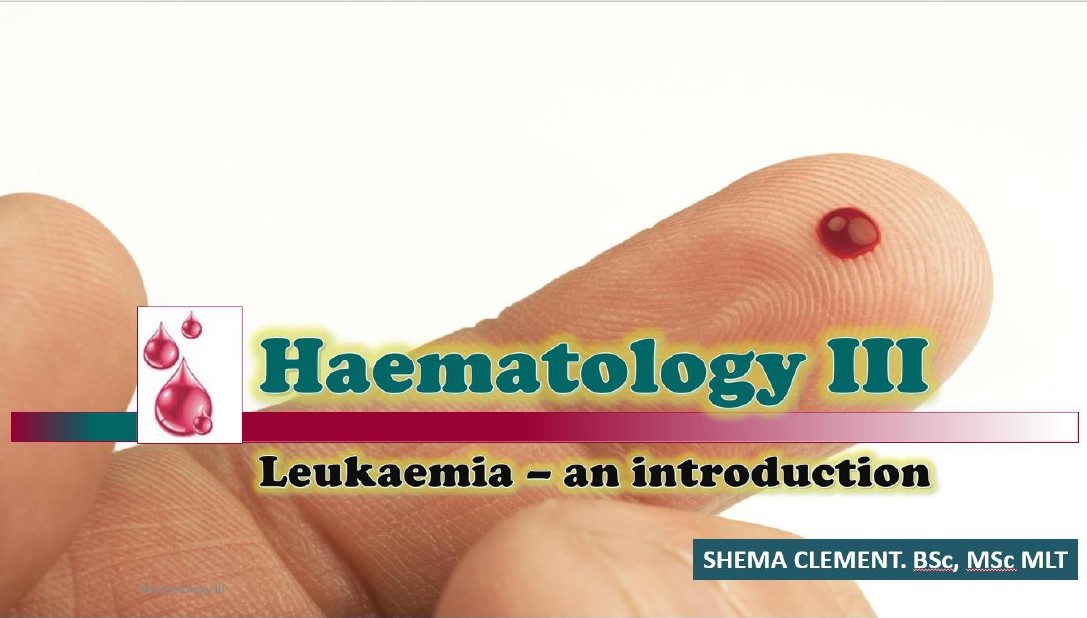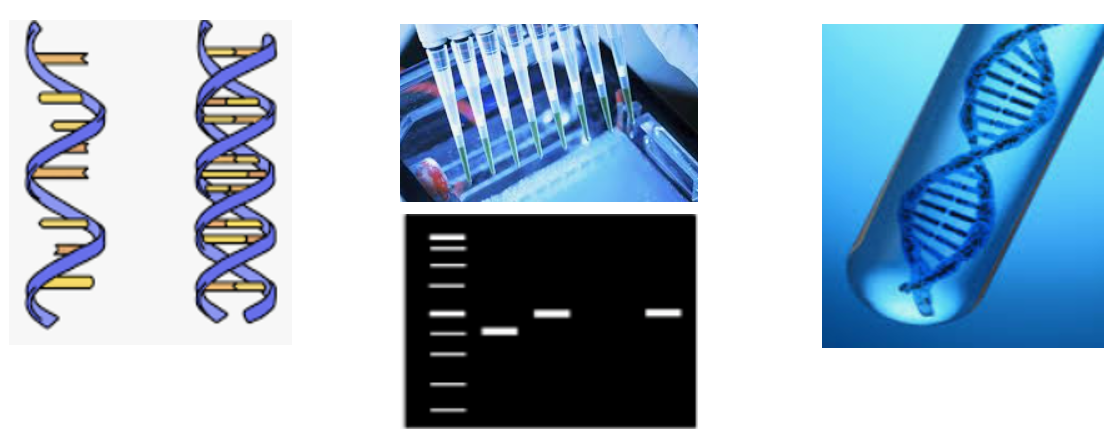
Molecular Biology I
The aims of this module are to introduction the students to molecular biology of the cell. The course will provide the student with understanding of the physiological roles of the DNA & RNA in perpetuation of life as genetic components of the cell. It will explains the interactions between the various systems of a cell, including the interrelationship of DNA, RNA and protein synthesis.

Biochemistry and Cell iolog
|
Biochemistry or biological chemistry deals with biomolecules (molecules found in living organisms): their structure and their location in tissues (structural biochemistry), the chemical transformations by which they are synthesized and degraded (Dynamic biochemistry) and their role in living organism. The study of biochemistry is essential to understand basic functions of the body. This will give information regarding the functioning of cells at the molecular level. This Module is organized around the three major themes, each of them is also subdivided into different chapters: I. Biomolecules: carbohydrates, lipids, proteins, glycoconjugates and nucleic acids II. Vitamins, Coenzymes and Biocatalysts: Chemistry of Vitamins and coenzymes and their physiological role, study of the properties, classification, kinetics and catalytic mechanism of enzymes. III. Major Metabolism patways and DNA replication |

HEAMATOLOGY III & IMMUNOHEAMATOLOGY II

Biochemistry
|
Biochemistry or biological chemistry deals with biomolecules (molecules found in living organisms): their structure and their location in tissues (structural biochemistry), the chemical transformations by which they are synthesized and degraded (Dynamic biochemistry) and their role in living organism. The study of biochemistry is essential to understand basic functions of the body. This will give information regarding the functioning of cells at the molecular level. This Module is organized around the three major themes, each of them is also subdivided into different chapters: I. Biomolecules: carbohydrates, lipids, proteins, glycoconjugates and nucleic acids II. Vitamins, Coenzymes and Biocatalysts: Chemistry of Vitamins and coenzymes and their physiological role, study of the properties, classification, kinetics and catalytic mechanism of enzymes. |

Molecular Biology II
- This module of molecular biology II will allow students to understand and apply the principles of recombinant DNA technology and gene
- It will equip students with knowledge and skill of nucleic acid manipulation in clinical and laboratory medicine and will allow students to learn the application of knowledge in DNA analysis and Disease Diagnosis.

food and water microbiology
7)Bacterial and fungal food poisoning 8)Laboratory Diagnosis of food born infections.

INTEGRATED PATHOPHYSIOLOGY AND SEMIOLOGY
- This module aims at providing students with relevant integrated knowledge, understanding of integrated relevance of laboratory diagnosis results and clinical the diagnosis of disease.
- the module also provides students with knowledge and understanding to interpret laboratory indices and results to specifc or combined pathophysiological changes seen in various diseases.

Analytical chemistry and Instrumentation
ANALYTICAL CHEMISTRY
Analytical chemistry studies methods and instruments used to separate, identify, and quantify matter. In practice, separation, identification and quantification may constitute the entire analysis. Separation isolates analytes. Qualitative analysis identifies analytes, while quantitative analysis determines the numerical amount or concentration.
Identification may be based on differences in color, odor, melting point, boiling point, radioactivity or reactivity. Classical quantitative analysis uses mass or volume changes to quantify amount. Instrumental methods may be used to separate samples using Chromatography, Electrophoresis or spectroscopy. Then qualitative and quantitative analysis can be performed, often with the same instrument and may use light interaction, heat interaction electric or magnetic fields. Often the same instrument can separate, identify and quantify an analyte.
Analytical chemistry has broad applications to medical and pharmaceutical sciences. Modern medical practice is highly dependent on the laboratory analysis of body fluids, especially the blood. The disease manifestations are reflected in the composition of blood and other tissues. Hence, the demarcation of abnormal from normal constituents of the body is determined by using Analytical chemistry. Thus analytical chemistry is an essential component of curriculum for all categories of health professionals.
This Module is organized around the following major themes, each of them is also subdivided into different topics:
I. Concept of Solution, concentration and pH
II. Buffer solutions
III. Potentiometry
IV. Chromatographic Separations
V. Electrophoretic separations
VI. Optical Spectrophotometry or Colorimetry
VII. Operation of medical laboratory instruments
Medical Parasitology 3
Medical Parasitology IV
This module will equip students with details knowledge and advanced parasitology skills applied in diagnostic and research settings laboratory.
In addition, the module will equip the students with special staining techniques, mounting, and preservation of specimens for teaching and research.The module is divided into 4 chapters:
1. Samples collection, Transportation & Preservation
2. Diagnostic technics for intestinal parasites
3. Diagnostic technics for blood & tissue parasites
4. Quality assurance & Safety in Parasitology Laboratory
At the end of this module every student should be able to:
- Analyze and identify particular parasites from given biological specimens.
- Use special stains and modern equipment for examination of parasites.
Bacteriology III
At the end of this module, students should be able to:
General Microbiology
This course introduces students to general microbiology which will help them understand the later courses in detailed microbiology aspects. Students will learn the morphological, structural functions, characteristics of microorganisms.
Medical Parasitology II
This course is will enable BLS students to understand the principles
pathophysiology and methods of laboratory identification and diagnosis of Protozoa
Medical Parasitology and Entomology
Clinical Laboratory Management
This module of Clinical Laboratory Management, describes the management process of medical laboratory resources including human, financial, equipment, materials and reagents, considers also leadership as a key point in assuring the laboratory quality results.
The modules has 6 chapters with 10 credits where we will have 3CATs, 6 assignments ,4 quiz, and final exam on 30%, 20% ,10% and 40 % respectively.
The aim of this module is to empower the students with the principles and practices of quality laboratory management. The topic also introduces the aspects of quality assurance and quality control for generation of quality results use efficient use of resources to achieve the organizational goals.
This unit will provide biomedical lab scientists with the necessary skills in managing biomedical labs.
This course encompasses the following chapters:
Chapter 1: management of medical laboratory where you find the description of management versus leadership, the main functions of management and also the quality of good laboratory manager.
Chapter 2: leadership styles: which explain clearly the quality of good leader and the main leadership styles that are applicable in medical field? The chapter will also show you the delegation process and when it is conducted.
Chapter 3: Quality management: It opens the students on how to assure quality of the laboratory result by conducting quality control. The student will be able to distinguish EQC and IQC/EQA.
Chapter 4: Management of laboratory resources: in this chapter the student will have enough knowledge on the management of laboratory resources main human effort and steps for hiring and recruitment process.
Chapter 5: Hospital/laboratory accreditation: the student will have skills on the accreditation steps and the tool for laboratory accreditation process: SLMTA and SLAPTA.
CHAPTER 6: Infectious waste management where the student will gain the skills on the sample collection, packaging, transportation and shipping.
After studying these modules every student will be able to understand the management process of medical laboratory, assuring goof laboratory results, and proper transportation of medical samples.
You will access the links provided for more understanding of this module.

phlebotomy and specimen management
PHLEBOTOMY AND SPECIMEN MANAGEMENT ENABLE STUDENT TO UNDERSTAND ABOUT BLOOD SAMPLE COLLECTION PROCDURE AND DIFFERENT SAMPLE TYPES COLLECTIONS METHODS

CLINICAL CHEMISTRY I
Clinical chemistry (also known as chemical pathology, clinical biochemistry or medical biochemistry) is the area of clinical pathology that is generally concerned with the analysis of bodily fluids for diagnostic and therapeutic purposes. All biochemical tests come under chemical pathology. These are performed on any kind of body fluid, but mostly on serum or plasma. The serum is the yellow watery part of blood that is left after blood has been allowed to clot and all blood cells have been removed.